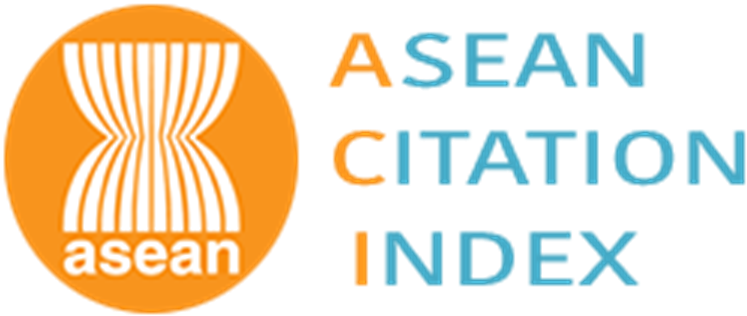การพัฒนารูปแบบการบริหารการอนุรักษ์พลังงานในอาคารธุรกิจอุตสาหกรรม
Development of Management Model for Energy Conservation in Industrial Business Buildings
Abstract
การวิจัยครั้งนี้มีวัตถุประสงค์ เพื่อศึกษาองค์ประกอบของการบริหารการอนุรักษ์พลังงานในอาคารธุรกิจอุตสาหกรรม เพื่อสร้างรูปแบบการบริหารการอนุรักษ์พลังงานในอาคารธุรกิจอุตสาหกรรม และจัดทำคู่มือการบริหารการอนุรักษ์พลังงานในอาคารธุรกิจอุตสาหกรรม การวิจัยในครั้งนี้ใช้เทคนิคเดลฟายโดยใช้กลุ่มผู้เชี่ยวชาญ จำนวน 22 คน และการสนทนากลุ่มประชาพิเคราะห์เพื่อพิจารณารูปแบบและเนื้อหาในคู่มือโดยผู้ทรงคุณวุฒิ จำนวน 14 คน เครื่องมือที่ใช้ในการวิจัยประกอบด้วยแบบสัมภาษณ์ และแบบสอบถาม สถิติวิเคราะห์ที่ใช้ประกอบด้วย ค่าความถี่ ค่าร้อยละ ค่ามัธยฐาน (Median) และค่าพิสัยระหว่างควอไทล์ (IQR) ผลการวิจัยพบว่า รูปแบบการบริหารการอนุรักษ์พลังงานในอาคารธุรกิจอุตสาหกรรม ประกอบด้วย 4 องค์ประกอบหลัก และ 23 องค์ประกอบย่อย โดยองค์ประกอบหลัก 4 ด้าน ได้แก่ 1) ด้านการวางแผน ประกอบด้วย 5 องค์ประกอบย่อย 2) ด้านการจัดองค์กร ประกอบด้วย 5 องค์ประกอบย่อย 3) ด้านการนำ ประกอบด้วย 7 องค์ประกอบย่อย และ 4) ด้านการควบคุม ประกอบด้วย 6 ประกอบย่อย ผลการประเมินโดยผู้ทรงคุณวุฒิมีมติเป็นเอกฉันท์เห็นว่ารูปแบบที่สร้างขึ้นมีความเหมาะสม มีประโยชน์ในการนำไปประยุกต์ใช้ในอาคารประเภทอื่น ๆ และคู่มือมีความเหมาะสม สามารถนำไปใช้ในการบริหารการอนุรักษ์พลังงานในอาคารธุรกิจอุตสาหกรรม และอาคารประเภทอื่น ๆ ได้
This research aims to: investigate components of effective energy conservation management in industrial business buildings, develop a relevant management model, and generate an energy conservation guidebook for the predetermined purpose. The Delphi technique was employed by recruiting 22 experts as the sample group. The consideration for the handbook content was conducted through the focus group discussion by 14 experts. The research tools consisted of an interview form and a set of questionnaires. The statistics used to analyze the data consisted of frequency, percentage, median, and Interquartile Range (IQR). Consequently, the framework for the management model constitutes 4 main components and 23 sub-elements. The major components can be divided into 4 aspects, each of which contains their respective sub-elements. These essential components feature: 1) Planning (with 5 sub-elements), 2) Organization management (with 5 sub-elements), 3) Leadership (with 7 sub-elements), and 4) Control (with 6 sub-elements). The suitability assessments by the experts showed that the panelists reached a consensus on overall appropriateness and implementation feasibility. Furthermore, the model handbook is suitable for energy efficiency management in industrial business buildings as well as different types of building classifications.
Keywords
[1] Department of Alternative Energy Development and Efficiency Ministry of Energy. (2020). Energy Situation January - September 2020. [Online]. (in Thai) Available: https://www.dede.go.th/ ewt_news.php?nid=55010
[2] Department of Alternative Energy Development and Efficiency Ministry of Energy, (2020). Thailand Energy Balance Report 2019. [Online]. (in Thai) Available: https://www.dede.go.th/ download/stat63/Energy_Balance_of_ Thailand_2562_for_web.pdf
[3] Ministry of Energy, (2021). Ministerial Regulation Prescribing Qualifications, Duties and Number of Personnel Responsible for Energy B.E. 2009. [Online]. (in Thai) Available: http://www. dede.go.th/dede/images/stories/energysaving 12/17_2552.pdf
[4] Manual for the Development of ISO 50001 Energy Management, IOS 50001, 2012. (in Thai).
[5] M. McMullan, R. Endacott, M. A. Gray, M. Jasper, C. M.L. Miller, J. Scholes and C. Webb, “Portfolios and assessment of competence: a review of the literature,” Journal Nursing Administratrion, vol. 41 , no. 3, pp.283–294, 2003.
[6] Department of Alternative Energy Development and Efficiency Ministry of Energy, (2021, November). Energy Conservation Promotion ACT, B.E. 2535 (1992). Office of the Council of State. Bangkok, Thailand [Online]. (in Thai) Available: https://www.dede.go.th/ewt_dl_link.php?nid =134
[7] Department of Alternative Energy Development and EfficiencyMinistry of Energy, “Energy Efficiency Development Plan (EEP2018),” Ministry of Energy, Bangkok, Thailand, EEP2018, 2020 (in Thai).
[8] P. F. Drucker, Instructional Leadership: A Learning- Centered Guide. The United State of America: Allyn and Bacon A Person Education, 2006.
[9] P. F. Mary, Dynamic Administration: the Collected Papers of Mary Parker Follett, New York: Hippocrene Books, 1977.
[10] G. R. Terry and S. G. Franklin, Principles of Management, 8th Edition, A I T B S Publishers & Distributors, 1994.
[11] J. D. Mooney and A. C. Reilly, The Principles of organization, New York : Harper Brothers, 1954.
[12] S. Sereerat, New Era Marketing Management, Bangkok: Theera Film & Scitex Co., Ltd., 1998 (in Thai).
[13] Department Of Industrial Promotion, “Power Management Type,” Industrial Development Support Division Sectoral Industrial Development Division 2, Bangkok, 2015 (in Thai).
[14] H. Fayol, General and Industrial Management, London: Pittman and Sons, 1964.
[15] G. S. Lim and R. L. Daft, The Leadership Experience in Asia. Singapore : Thomson Learning a division of Thomson Asia Pte Lte, 2005.
[16] J. L. Calof and P. W. Beamish, “Adapting to foreign markets : Explaining internationalization,” International Business Review, vol. 4, no. 2, 1995.
[17] M. Sashin, The Visionary Leader Questionnaire, quoted in Clarke and Liz, The Essence of Change. Great Britain : BPC Wheatons Ltd, Exeter, 1994.
[18] J. Chenaphun, S. Wisuttipaet, T. Roopsing and P. Attavinijtrakarn, “The development model of energy manager’s potential in industrial plants,” The Journal of KMUTNB, vol. 28, no. 2, pp. 461–468, 2018 (in Thai).
[19] K. Thongprasit, S. Siengchin, T. Boonyasopon and S. Wisuttipaet, “Competency development for personnel responsible for energy management in textile industry under the ministry of energy,” The Journal of KMUTNB, vol. 33, no. 1, 2020 (in Thai).
[20] T. Reed, “A case for shared branching: the personal touch remains,” Journal of Advanced Nursing, vol 12, pp. 765–771, 1998.
[21] Department of Alternative Energy Development and Efficiency Ministry of Energy. (2021). Ministry of Energy’s Notification on Criteria and Procedure for the Management of Energy in Designated Factories and Building B.E. 2552. Bangkok, Thailand. [Online]. (in Thai) Available: http://berc.dede.go.th/wp-content/ uploads/2021/03/4A1-standard2552.pdf
DOI: 10.14416/j.kmutnb.2024.07.009
ISSN: 2985-2145





